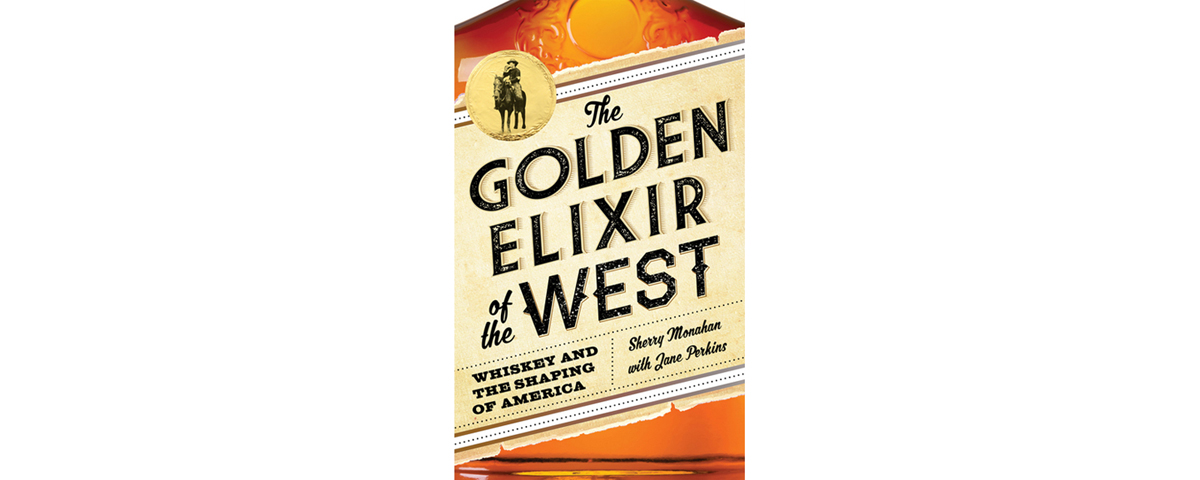The Golden Elixir of the West: Whiskey and the Shaping of America, by Sherry Monahan with Jane Perkins, TwoDot Books, Guilford, Conn., and Helena, Mont., 2017, $24.95
A history of whiskey in the American West covers an element so ubiquitous in everyday affairs one wonders why no one thought of writing a retrospective sooner—at the same time understanding why one might overlook it. Recorded references to Celtic uisce beatha (“water of life”) date back to Irish monks in the 11th century and Scottish variations to at least 1498. Turn their descendants loose in the 13 Colonies, and the stage was set for The Golden Elixir of the West, a focused look by co-authors Sherry Monahan and Jane Perkins into how whiskey did not just accompany pioneers and settlers westward but played a role in their progress, whether it be in establishing towns or laying the Transcontinental Railroad.
A case in point are the saloons, the first ramshackle versions of which were erected alongside a town’s earliest residences: “These establishments were the epicenters of most towns, where men gathered to get their news, read newspapers and business journals, talk politics, and unwind…many a deal was made over a whiskey cocktail, whether it was political, business, or social. In rural towns, saloons often served as the school or community center by day and a drinking and gambling mecca by night.” As the town developed, the saloon became more specialized—and usually ornate, with a professional mixologist to add to the place’s attraction, as mixed drinks were far more popular in the frontier than usually depicted in movies (the authors thoughtfully end their narrative with a collection of recipes from the time—cheers!).
Proper women did not imbibe, least of all in saloons, but distillers did a brisk business convincing female customers of their products’ “medicinal” virtues. By the late 1800s, however, even more proper women were leading the temperance movement to rid the West of the “demon drink.” The dilemma involved in selling whiskey to American Indians is also covered, most fundamentally by black mountain man Jim Beckwourth, who on one hand stated, “This trading whiskey for Indian property is one of the most infernal practices ever entered into by man,” but at the same time confessed, “I was there for the purpose of making money, and when a chance offered, it was my duty to make the most of it.” The authors limit their history to the United States, so there is no mention of how American whiskey peddlers’ practice of seeking clientele among the First Nations was one of the original raisons d’être behind the creation of Canada’s North-West Mounted Police.
Taken within the limits of time and space set by the authors, The Golden Elixir of the West is a lively revisiting of how the West was won, viewed through a shot glass—complete with what then constituted a shot glass.
—Jon Guttman





